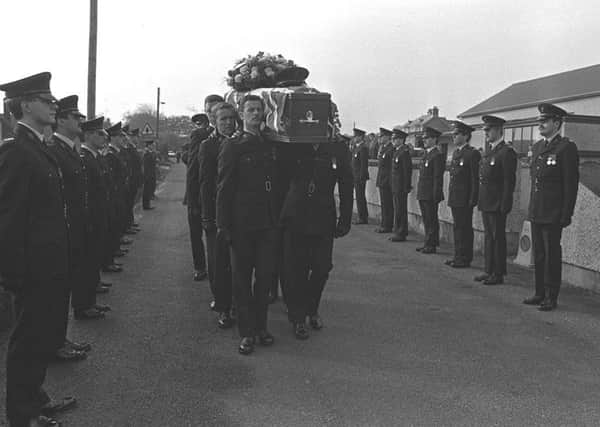Former RUC man: Men who killed my colleagues laughed at me in the street


The following excerpt comes from ‘Considering Grace’, a new book on how the Presbyterian Church in Ireland dealt with the Troubles:
Craig grew up on a farm near the border. His mother’s family were farmers in what became the Irish Republic after partition. Craig’s father was in the B-Specials. “I used to clean his gun for him, being the eldest in the house. It was almost as tall as me. When their weapons were inspected, his was always commended. This is what he told me, which was perhaps an incentive for me, because I was saving him a job.”
Advertisement
Hide AdAdvertisement
Hide AdAs a child, Craig watched as family friends were killed in the Troubles. He felt “a great sense of injustice. In my mind, people who were brave enough to put on a uniform were going out against this force of evil”.
He joined the RUC. Early in his career, a colleague was murdered by a car bomb. “At the very impressionable age of twenty, I had the dubious job of carrying a comrade’s coffin, hearing his two little daughters walking behind crying, ‘Daddy, daddy’. I knew that more than half of their daddy’s body mass was not in the coffin and that sand had been used to replicate the weight that wasn’t there.”
A few years later, Craig was travelling in an armoured car that struck a landmine.
“Later I became aware of the names of the people who were alleged to have been involved in the attempted murder of myself and my colleague. They have never answered on earth for what they have done. But with my Christian belief, I know that unless they fully repent, there is a day of judgement coming. That is the only solace I can draw.”
Advertisement
Hide AdAdvertisement
Hide AdCraig knows the identities of others who murdered his colleagues but have not faced prosecution. In one incident, colleagues were killed and maimed for life. Years later, Craig was walking down the street in his hometown when he passed the men he believed were responsible. “When they passed me, they sneered and looked me straight in the eyes and laughed. It was the defining moment in my life where I realised that there was no real justice in this world. Those men had been allowed to come back across the border without the fear of being lifted and put before a court.”
Craig also believes that some Catholics tried to save the lives of police. He described receiving anonymous phone calls that warned them not to travel on certain roads at certain times. “On a human level, they were people who recognised we were not as bad as we were being portrayed. That helps me to be reassured that the milk of human kindness is within everyone.”
There were Troubles-related bereavements in his congregation. Craig thought his minister “did an absolutely outstanding job, listening to people and making himself available. He conveyed the Biblical precepts by which we need to align ourselves”.
For Craig, those Biblical precepts have translated into an openness to former enemies. “Someone asked me not that many years ago, if the then Deputy First Minister [Martin McGuinness] were to extend the hand of welcome to me, would I be able to shake it? I had to think about that for some time, knowing a little more information on the inside about his activities than the ordinary average person in the street. That is a moral question that did cause me some doubt initially. But if Her Majesty the Queen can shake him by the hand, well I would be a very poor person if I couldn’t do likewise.”
• ‘Considering Grace’ by Gladys Ganiel and Jamie Yohanis, published by Merrion Press, is available in most bookshops priced £14.99